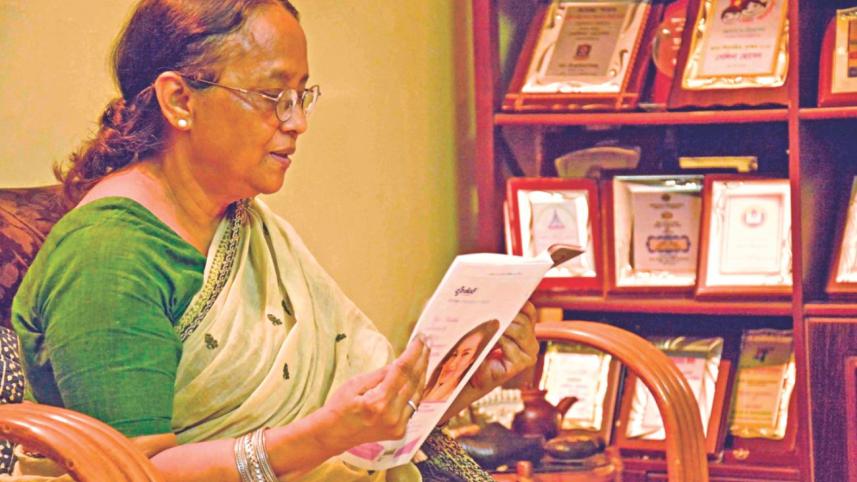“The Book Fair celebrates our language”

Recipient of the Bangla Academy Award, the Alawal Literary Award, the Philips Literary Prize, the SAARC Literary Award and more, eminent litterateur Selina Hossain's works have been translated into several languages. Some of her works have been regarded as a crucial element of academic discourse and is part of the university curriculum both at home and abroad. The novelist is currently the Chairperson of Bangladesh Shishu Academy, and in the wake of Ekushey February and the Ekushey Book Fair, The Daily Star recently got in touch with the author about her writing and more:
February is the observation of Ekushey Book Fair, which is closely connected to the Language Movement in 1952. How has its significance changed over the years?
Selina Hossain: The Ekushey Boi Mela holds a pivotal role in upholding the respect and prestige accorded to our mother tongue. There are many native languages around the world that is slowly becoming extinct, and our Book Fair ensures that our language is celebrated and widespread. Furthermore, publications of the many books are crucial for the education and development of younger and future generations. Over the past decades, the fair has been a key in the growing significance of our culture and roots. It is a passion for life, where people from all backgrounds can gather to mingle under one common interest.
Your works have been regarded as influential in shaping the discourse of Language Movement and Liberation War histories. Out of all the books you have written, which do you hold most dear?
Selina Hossain: I have written several novels on the Language Movement and the Liberation War. Out of the 39 novels I have written, two are set against the backdrop of the Language Movement, and eight in the Liberation War setting. I feel that writers must address a diversity of issues, or else their works may turn monotonous. Writing my novel “Mogno Choitonnyo Shish” in 1977 gave me much joy. My novel “Lara”, written in 1999, was an important journey in self discovery as an artiste.
How did your passion for writing begin?
Selina Hossain: I had an enriching childhood. Nature, poverty, the people and their experiences surrounded me during those years. When I was a student of Dhaka University in the '60s, the urge within me to recount all those memories and experiences began, and that is when I started writing.
What are the responsibilities a writer must be aware of when working on a manuscript?
Selina Hossain: When it comes to writing a manuscript, the writer must keep in mind whether what he wants to write is being put down correctly. If it is a novel, then the ideas must be cohesive and it is careful to check whether the story is progressing the right way, with defined characters and well-thought out sentences without spelling mistakes. Overall, the utmost responsibility an author holds is to make sure his readers are receiving a manuscript that is organised and clear.



 For all latest news, follow The Daily Star's Google News channel.
For all latest news, follow The Daily Star's Google News channel.
Comments